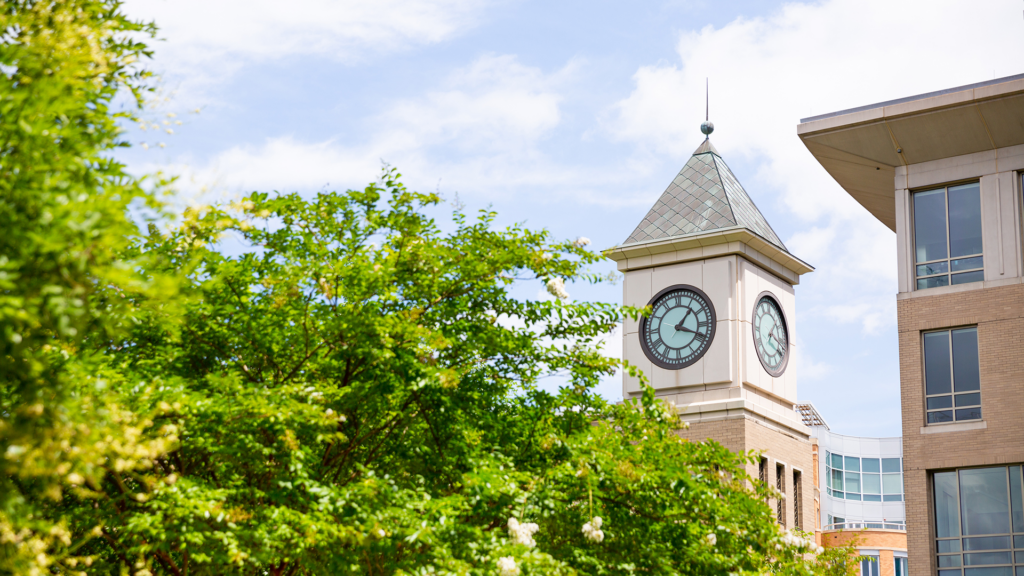The Georgetown University Law Center launched a pair of commitments Aug. 30 to help individuals facing housing insecurity throughout Washington, D.C., after the national eviction moratorium expired.
The initiatives come after the Supreme Court blocked a renewal of the national eviction moratorium, originally established because of the COVID-19 pandemic. Under one of the initiatives, students from the Law Center are working directly with the office of D.C. Attorney General Karl Racine to provide legal advice for D.C. tenants facing eviction. In addition, the Georgetown Law Health Justice Alliance Clinic, a partnership between the Law Center and the Georgetown University Medical Center, repurposed a program to provide legal advice and free health screenings to D.C. residents simultaneously.

Many D.C. tenants are not aware of the government assistance that is available to them throughout the eviction process, according to William Treanor, dean of Georgetown Law.
“At Georgetown Law, we’re focused on two things mainly: what we can do to help people get money from the government program and if the moratorium is lifted in D.C., if there is anything that law students can do to help,” Treanor said in a phone interview with The Hoya.
After the original national eviction moratorium expired July 31, the Centers for Disease Control and Prevention attempted to re-establish the eviction pause with an Aug. 3 order. The renewal was subsequently blocked by the Supreme Court Aug. 26.
D.C.’s eviction moratorium is still in place but will end Oct. 12. Congress has allocated over $46 billion to rental relief programs around the country, of which $200 million has been allocated for residents of the District. Many residents are unaware of the program’s existence, according to Treanor.
Under the Law Center initiative with the Office of Attorney General for the District of Columbia, law students work directly with tenants in the District. The students fill out the necessary aid applications from the rental relief programs and provide technical assistance to help residents.
Even with the help of the law students, the process of filing for rental assistance is still difficult for residents who may be on the verge of eviction, according to Erica Hashimoto, associate dean for clinics and experiential learning at Georgetown Law.
“For instance, you need a computer, and if a resident doesn’t have a computer, it’s hard for them to fill this form out,” Hashimoto said in a Zoom interview with The Hoya. “Even in D.C., where the process is a little easier, it’s still very difficult for people, especially with getting the word out, particularly because we’re back in the middle of the pandemic.”
As a result of the eviction crisis, D.C. took steps to simplify the application process, offering an accessible application along with a guide for eligibility and a hotline. The Office of the Attorney General also asked for volunteers outside of the Law Center partnership to help with legal clinics around the city.
In addition to collaborating with the Office of the Attorney General, Law Center students are also providing general legal assistance to D.C. residents through legal “checkups” provided by the HJA Law Clinic. The HJA also provides residents with free medical checkups, according to Hashimoto.
The medical-legal partnership not only provides free medical services for D.C. residents but also helps Law Center students to proactively help tenants prepare for possible evictions, according to Marta Beresin, a visiting professor of law in the clinic.
“We’re able to get families in contact with lawyers before they get their eviction notice from their landlord and intervene upstream to assist families in getting eviction prevention funds,” Beresin said in a Zoom interview with The Hoya. “Normally, a low-income family in D.C. would not connect with a lawyer until they receive a notice to quit from their landlord or an eviction notice calling them to court because that’s when they first realize they need a lawyer.”
The HJA Law Clinic provides assistance to patients of the MedStar Georgetown University Hospital Division of Community Pediatrics’ KIDS Mobile Medical Clinic, which parks in public housing complexes to provide care for children. The clinic also visits health centers at Anacostia High School and Roosevelt High School to provide assistance to local families.
The Law Center will continue striving to help D.C. residents and will launch further initiatives as the eviction crisis continues to unfold, according to Treanor.
“Our focus right now has been much more on what we can do with getting the word out on this emergency rental assistance program and helping people fill out the forms,” Treanor said. “I think we’re starting to think through what law students can do once landlords start filing evictions, but we’re only really starting to think through that.”














